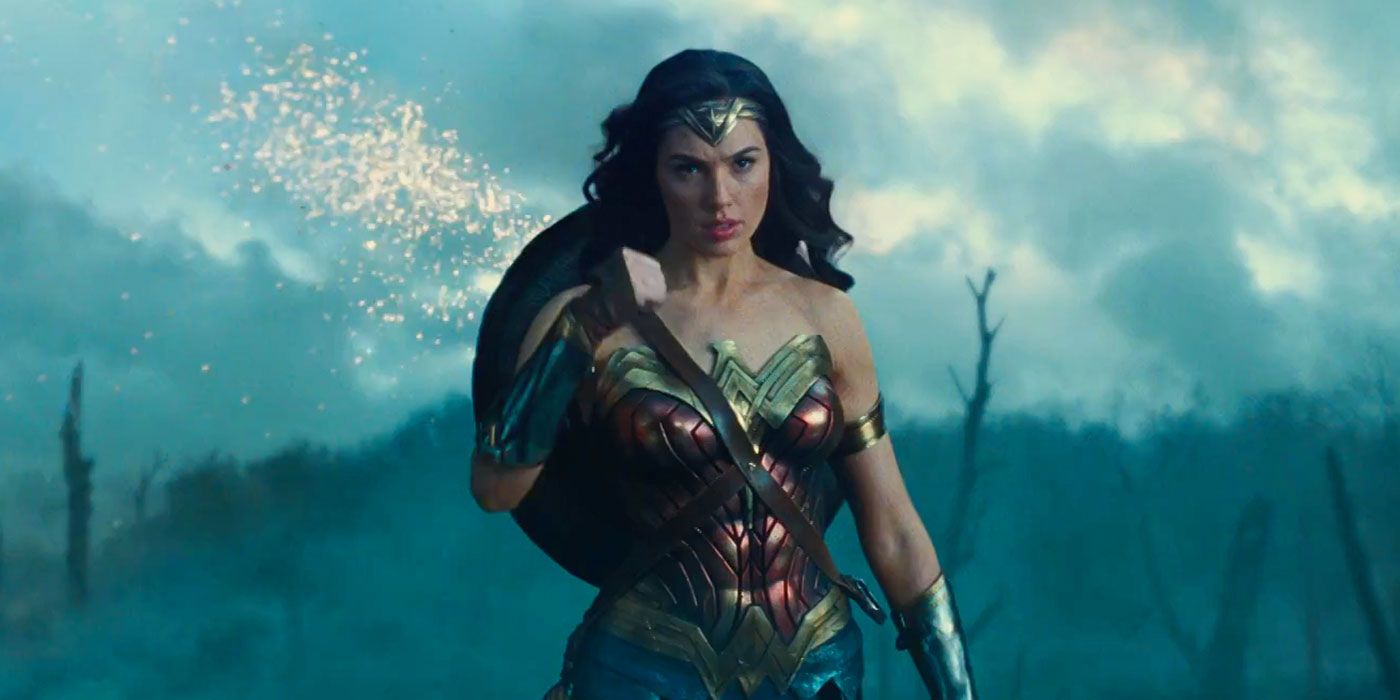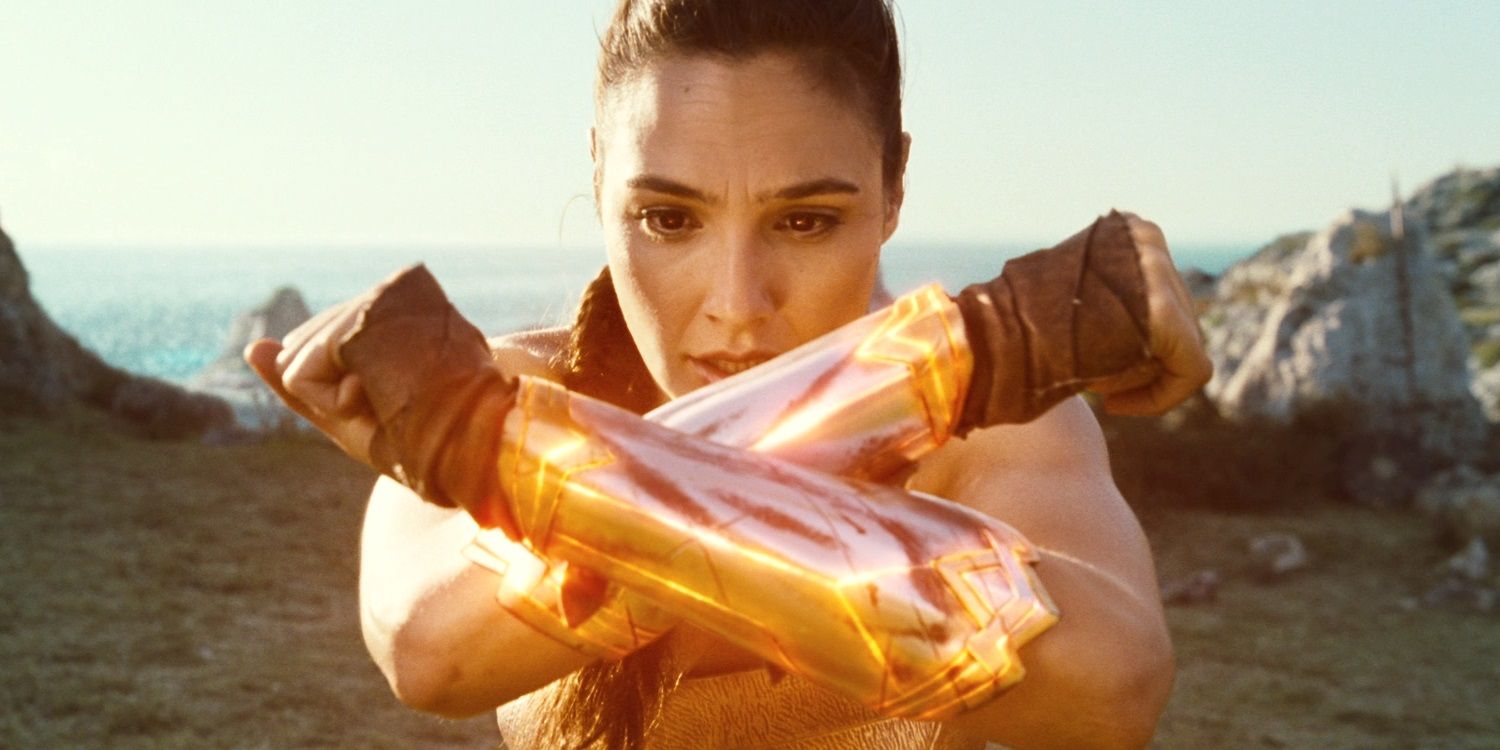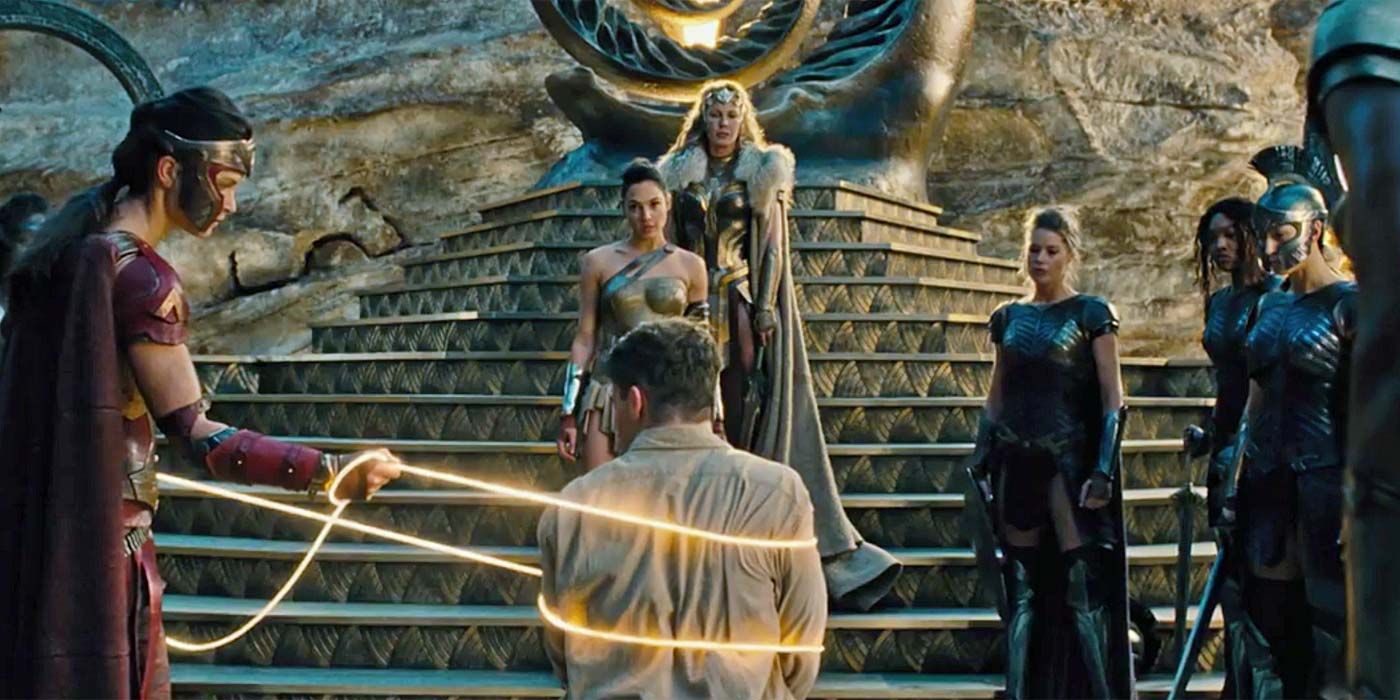As early Wonder Woman audiences rave about the Amazonian's spectacular big-screen debut as a solo hero, the film's financial success remains crucial for the future of Warner Bros.' fledgling DC Extended Universe. More than that, however, Wonder Woman's prosperity is vital for the future of all female leading heroes.
RELATED: Wonder Woman Review: Far And Away The Best DCEU Movie Yet
The DC Comics icon has gone toe-to-toe with some of the publisher's most treacherous foes, but to pave the way for other leading heroine roles, Wonder Woman had to conquer an opponent more fearsome than Doomsday: the movie critic. The influence of initial reviews and word of mouth was kryptonite to Man of Steel, Batman v Superman: Dawn of Justice and Suicide Squad, each of which experienced steep declines at the box office in the second weekend of release. Of course, their early Rotten Tomatoes scores offered a pretty good idea that audiences might not embrace those films. Wonder Woman, on the other hand, heads into wide release with a Rotten Tomatoes rating of 93 percent and the coveted label of "Certified Fresh." Combine that with the palpable enthusiasm among audiences, and it's a safe bet the Amazon's second weekend won't deliver a fatal blow to its odds of turning a profit.
Over the decades, several female comic book heroes have soared to incredible heights of popularity. However, few have achieved those levels of fame without relying on ties to male characters. A majority of the most recognizable superheroines, from Batgirl to Supergirl to Captain Marvel (formerly Ms. Marvel), began as counterparts to established male characters. Created in 1941, when superhero comic books were still in their infancy, Wonder Woman notably eschews such connections.
Despite achieving their own, often impressive, levels of success, most superheroines find themselves perpetually in the shadows of their male counterparts. Despite their undeniable popularity, characters like Batgirl and Supergirl will never reach the stardom of Batman and Superman, and heroes such as She-Hulk and X-23 will likely never be as widely embraced as the Incredible Hulk and Wolverine. There are countless female comic characters plagued by such patriarchal constraint, favorites like Thor (Jane Foster), Silk, Hawkgirl, Wasp, Harley Quinn, and Marvel's most recent, Ironheart.
As long as female heroes continue to carry the names, symbols and features of their male counterparts, their popularity will surely be at least somewhat limited. Ultimately, their link to male heroes is a gift within a curse, providing them a platform for recognition while restricting their level of success.
RELATED: Lifted By Positive Reviews, Wonder Woman Eyes $95 Million U.S. Debut
In addition, the male-based foundations upon which most leading female heroes have been built has led to a problematic dependency upon the male hero's name. Unfortunately, in order for many female heroes to reach equal notability, they must act as an extension of that character. An example: Following her debut on Batman: The Animated Series, Harley Quinn has not only been adapted into DC's comics canon, she's attracted wave after wave of new fans. Yet, without her initial connections to the Joker, Harley's popularity would likely never have hit the heights it has.
Catwoman and Elektra have experienced similar issues; while they don't take on the names of male heroes, they're known as parts of the Batman and Daredevil mythos, respectively, therefore relying upon a male name before developing their own individual personas. It's virtually impossible not to think about the Cape Crusader when mentioning Selina Kyle, or envisioning the Devil of Hell's Kitchen at hearing the name Elektra. That both starred in their own solo films, both of which were financial and critical flops, is a sad coincidence.
One of the greatest setbacks in establishing female heroes on the backs of already-predominant male heroes is the lack of authentic origin given to women characters. That lack of original backstory affects the perception of female heroes in various ways. First, it negatively establishes the female hero as a knock-off to the male counterpart. Secondly, the absence of a unique story forges a bit of a disconnect between avid comic readers and female heroes. Fans are less likely to be as interested in Kara Zor-El's (Supergirl) storyline, for example, as it mirrors so many aspects of Superman's.
What draws fans to the world of comics are characters with distinctiveness, those whose stories hook us in through innovation. While male characters have been the focus of progressive, imaginative storytelling for decades, the relevance of the heroine story has ultimately been sidelined during that same period.
RELATED: Wonder Woman Review: Far And Away The Best DCEU Movie Yet
That's where we come back around to Wonder Woman. As one-third of DC Comics' Trinity (alongside Superman and Batman), Diana is in a league of her own. Embodying the concept of female independence, Diana hails from Themyscira, an island of Amazons whose world contests the realities of our own, fearlessly affirming women's prosperity without men. Her story is a testament to equality, and as a member of DC's Trinity, Wonder Woman has managed to sustain a rare, independent position alongside her male counterparts.
By differentiating herself from fellow icons like Superman and Batman, Wonder Woman has cemented her own legacy, one apart from male influence and dependency. Her significance has spread around the globe, where she stands as a symbol of female empowerment. From her temporary status as an honorary United Nations ambassador to promote gender equality to her presence throughout women's marches to the women-only screening of her film in Texas, Wonder Woman's relevance is undeniable.
With Gal Gadot's portrayal of the heroine arriving this weekend in theaters worldwide, Wonder Woman holds the weight of change on her shoulders. If its critical acclaim can translate into commercial success, Wonder Woman will be a watershed moment for films starring female superheroes. It stands not only to inspire increased representation on screen but also to break the dependency binding those characters to the popularity of male heroes. There's no character better prepared to lead that charge than DC's Amazon princess.



